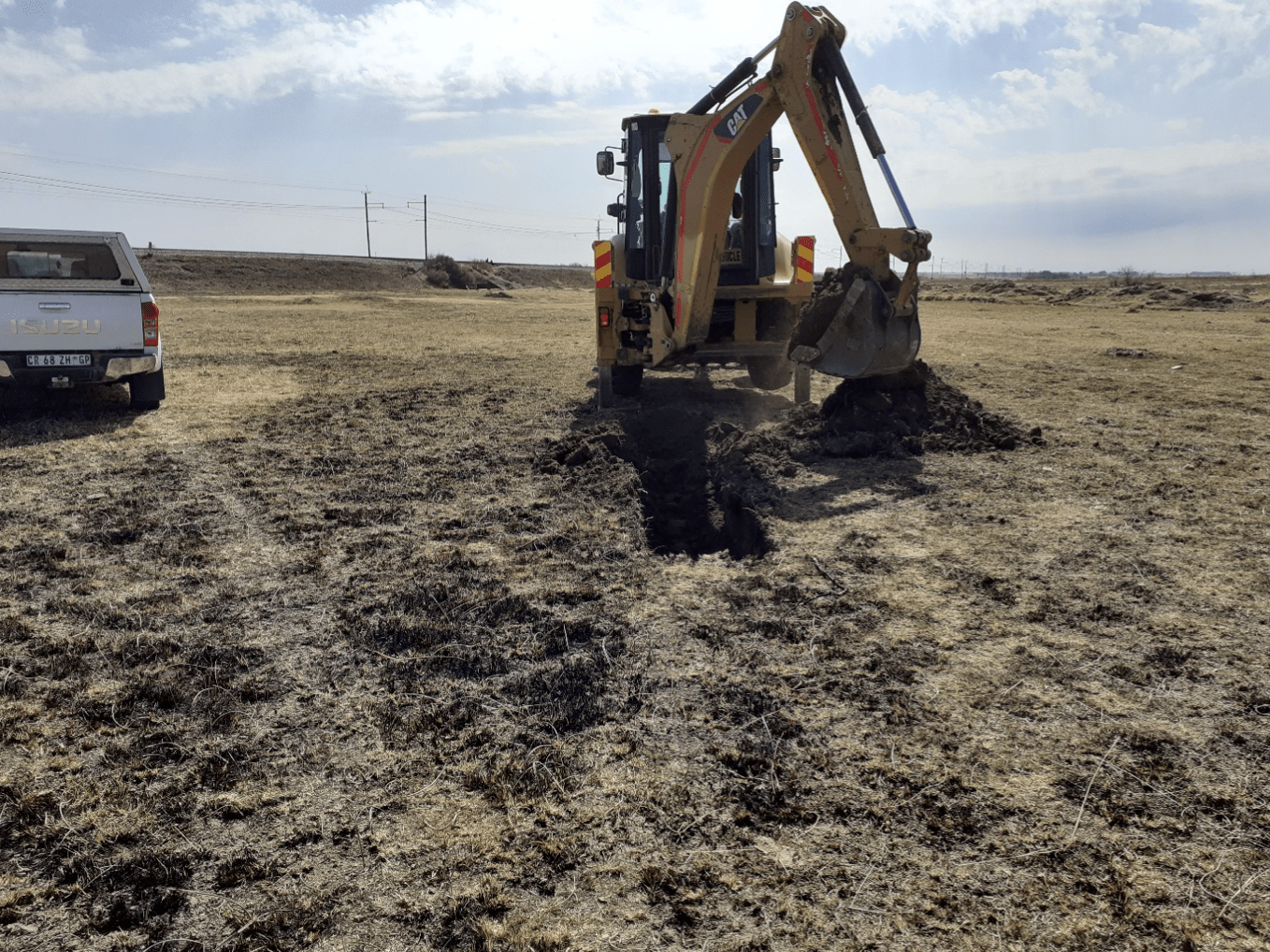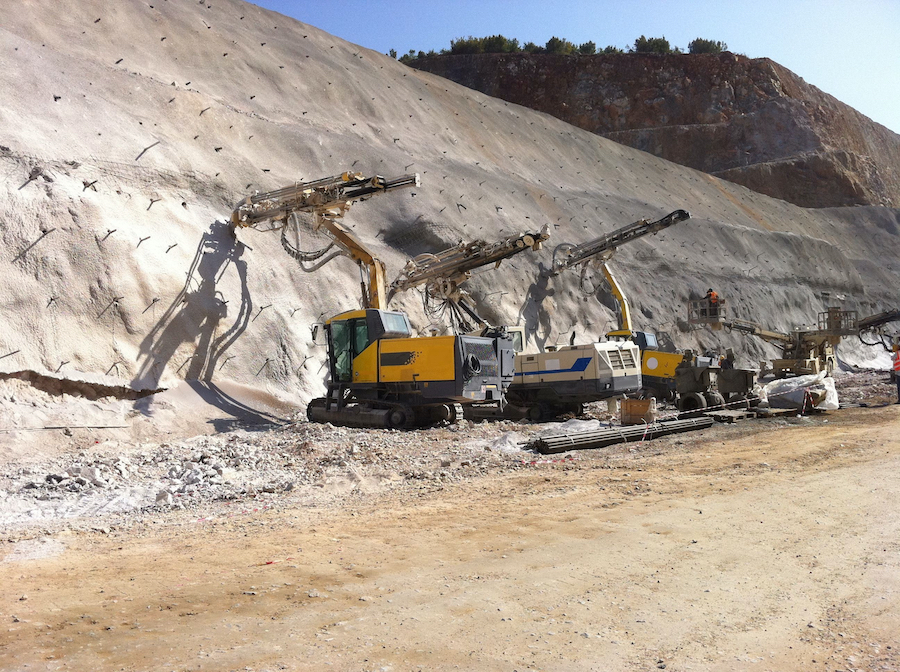How a Geotechnical Specialist Can Make Sure the Success of Your Building Structures
How a Geotechnical Specialist Can Make Sure the Success of Your Building Structures
Blog Article
The Value of Geotechnical Design in Attending To Ecological Difficulties and Enhancing Building Safety
Geotechnical engineering works as a cornerstone in the crossway of environmental stewardship and building safety and security, providing crucial insights into the actions of dirt and rock under different conditions. This discipline not just addresses pressing environmental difficulties such as soil disintegration and groundwater security but also boosts the toughness of framework versus natural hazards. By applying critical site investigations and customized mitigation measures, geotechnical designers play an important duty in securing both human lives and ecological stability. The intricacies of these difficulties elevate essential concerns concerning the future direction of this area and its implications for lasting development.

Role of Geotechnical Engineering
Geotechnical design plays a critical duty in the layout and building and construction of framework by addressing the behavior of soil and rock materials under various conditions. This area of design is important for recognizing the communication between frameworks and the ground, which includes figuring out the load-bearing capability of dirt, analyzing stability, and forecasting prospective negotiation or failure.
Geotechnical designers are accountable for conducting website investigations, which involve tasting and screening dirt and rock to gather information on their physical and chemical properties. This details is crucial for making foundations, keeping walls, and other earth-retaining structures that make certain safety and durability. Furthermore, geotechnical engineering informs the option of ideal building and construction methods and products, consequently lessening risks connected with soil habits.
Additionally, the combination of geotechnical design principles into city preparation and environmental administration is critical for attending to challenges such as ground contamination and groundwater administration. By comprehending geotechnical variables, engineers can establish sustainable services that boost the resilience of framework versus natural risks, while additionally advertising ecological stewardship. Inevitably, the function of geotechnical design is crucial for attaining secure, resilient, and ecologically mindful building and construction techniques.
Dirt Disintegration Mitigation
Soil erosion positions a considerable danger to both ecological security and facilities honesty, influencing about 24 billion lots of fertile soil lost annually worldwide. This sensation is exacerbated by factors such as deforestation, urbanization, and poor agricultural techniques. Geotechnical design plays a crucial role in developing effective soil disintegration reduction approaches that secure both the atmosphere and building and construction tasks.
One strategy requires the application of erosion control methods such as plant life growing, which maintains dirt with root systems. In addition, the building and construction of preserving walls and terraces can properly minimize surface drainage and secure prone areas from disintegration. Appropriate drain design is additionally vital; it reduces water accumulation and routes excess overflow away from essential frameworks.
Furthermore, geotechnical designers utilize dirt stabilization techniques, such as the application of geotextiles and eco-friendly mats, to boost soil communication and stop degradation - all about geotechnical engineering. Routine monitoring and evaluation of erosion-prone sites enable prompt interventions, making certain long-lasting sustainability. By integrating these methods, geotechnical engineering not just alleviates the effects of dirt disintegration yet likewise adds to the strength of facilities against environmental difficulties, ultimately fostering a safer and a lot more lasting built atmosphere
Groundwater Defense Techniques
Groundwater works as an important resource for alcohol consumption water, farming, and industrial processes, making its security crucial for environmental sustainability and public health and wellness. Effective groundwater security approaches are crucial in alleviating contamination threats and ensuring the durability of this source.

Normal monitoring of groundwater top quality is likewise essential, allowing very early discovery of contamination sources and facilitating timely removal efforts. Utilizing advanced modern technologies, such as geophysical studies and remote noticing, help in identifying prospective hazards to groundwater books.
In addition, public education and stakeholder involvement are critical, promoting area support for groundwater security efforts. all about geotechnical engineering. By combining regulative procedures, technological innovations, and area involvement, we can create a click here for more comprehensive framework that safeguards groundwater resources while promoting sustainable advancement and building practices
Landslide Risk Administration
Landslides position considerable dangers to both human security and framework, making efficient danger monitoring strategies vital. Geotechnical design plays a crucial duty in determining, examining, and mitigating landslide threats. A thorough understanding of incline security, dirt technicians, and hydrology is important for establishing efficient danger administration plans.
The initial step in landslide danger administration entails detailed website examinations, which consist of geological mapping and soil screening. These investigations help engineers review the possibility for landslides by determining important aspects such as incline angles, soil composition, and water web content. Utilizing innovative innovations such as remote noticing and geophysical surveys can enhance the precision of these evaluations.
Once risks are determined, appropriate reduction procedures can be carried out. These may consist of design services such as retaining wall surfaces, water drainage systems, and incline stabilization strategies. Keeping an eye on systems ought to see page be developed to find indicators of ground motion and adjustments in water levels, permitting for positive treatments.

Enhancing Building Safety
Construction sites often present a myriad of threats that can jeopardize employee security and job integrity. click for source Geotechnical engineering plays a critical duty in boosting building safety and security by supplying important insights right into subsurface conditions. Via thorough dirt and rock analysis, geotechnical designers can recognize potential dangers, such as dirt instability, groundwater issues, and seismic vulnerabilities, which might jeopardize the safety of building and construction tasks.
Executing geotechnical remedies, such as correct structure layout and the use of maintaining structures, reduces these threats considerably. These options not just make sure the stability of the structures being constructed yet also produce a more secure working environment for building employees.
Additionally, cultivating a society of safety and security via training and adherence to developed safety and security methods further boosts construction site safety. By integrating geotechnical competence right into the planning and execution phases, construction jobs can accomplish greater security requirements, ultimately protecting workers and ensuring effective task completion.
Verdict
In final thought, geotechnical design offers as an essential self-control in tackling environmental obstacles and promoting building safety and security. With reliable soil disintegration mitigation, groundwater security approaches, and landslide risk monitoring, geotechnical engineers add to the advancement of resistant infrastructure.
Geotechnical design offers as a cornerstone in the crossway of ecological stewardship and construction security, giving important insights into the actions of dirt and rock under various conditions. Geotechnical design educates the selection of suitable building techniques and products, thereby reducing dangers linked with dirt behavior.
Geotechnical engineering plays a critical function in establishing reliable dirt erosion mitigation techniques that secure both the atmosphere and building and construction tasks.
Moreover, geotechnical engineers employ dirt stabilization methods, such as the application of geotextiles and naturally degradable floor coverings, to improve soil cohesion and stop deterioration. With detailed dirt and rock evaluation, geotechnical designers can recognize possible threats, such as dirt instability, groundwater problems, and seismic susceptabilities, which may jeopardize the safety and security of construction activities.
Report this page